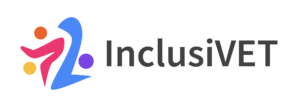Self-reflexive Exercise 1 – Video
For further clarification of the terminology used here, the following video provides a quick overview of the terms coaching, facilitating and mentoring:
a. Guidelines for Effective Individual Coaching:
- Focus on personal growth of a learner: In the context of this course, we talk about individual coaching with a focus on learner engagement, e.g.: what do you need to be able to grow into a more professional learner representative? What skills are you lacking, and how can I support you in this? However, often more personal matters will surface during coaching. This is normal, and also a sign that your learners trust you. But if this occurs, boundaries are important! You should have a clear view on where your responsibility ends and try to not cross this line. You have to be able to guide students to more professional and suited help. A gentle push in the direction of other staff members (e.g. the school psychologist) or external help can make all the difference for these learners.
- Build trust: Individual coaching can be a very good way to install a trusting relationship with engaged learners. However, the aim of this coaching should be to create a trusting group of learners that also learns from each other. Individual coaching and group coaching can go hand in hand, which also makes it less time consuming for yourself.
- Leverage institutional resources: As their coach, you should really know your way around the VET institution, its staff, its structures, etc. Get to know your colleagues, their vision on learner engagement and get them involved when you need advice.
b. Guidelines for group coaching
In addition to individual coaching, group coaching complements individual efforts by promoting collaboration and peer learning. Whereas individual coaching focuses on addressing the unique challenges and goals of a single learner, offering tailored guidance and strategies, group coaching brings together multiple learners, leveraging collective insights, shared experiences, and peer interactions to foster collaborative learning and problem-solving. The coach, in this setting, acts more as a facilitator, guiding discussions, fostering collaborative learning, and ensuring a safe space for open dialogue. The benefits of group sessions lies in their potential for community-building and the emergence of peer-driven insights. Learners learn not just from the coach, but from each other, enriching their understanding and creating a supportive learning ecosystem.
For learner support staff, facilitating group coaching requires a balance between structure and flexibility. The coach’s role is to guide the session, ensuring everyone has a voice and that the group stays on track, all while allowing organic interactions and peer-led discussions to unfold. When executed effectively, group coaching can not only address individual concerns but also instil a sense of belonging, promote interpersonal skills, and foster a culture of collaborative problem-solving among students.
The below visual is made for academic coaching, but some of it applies to coaching learners that take part in learner engagement, in particular as learner representatives, as well!v
(LearnPick, XXX)
